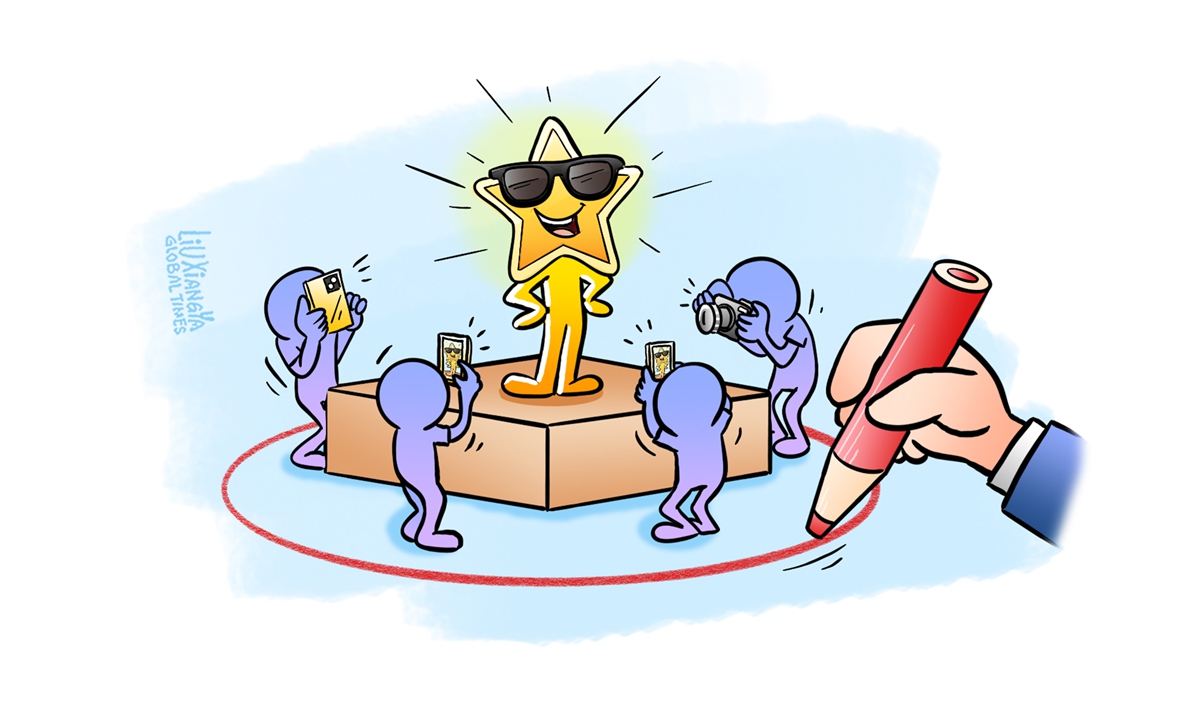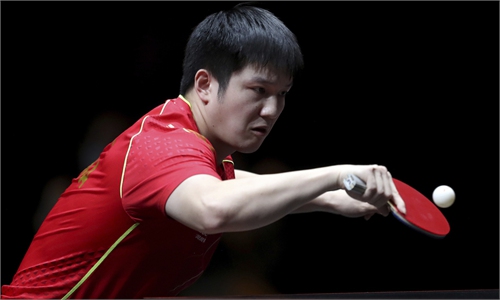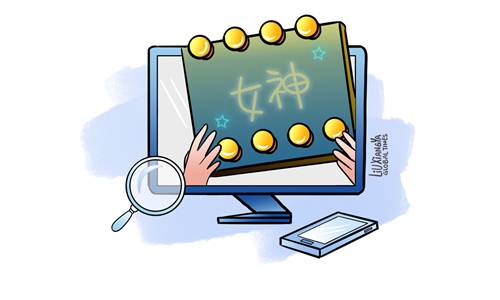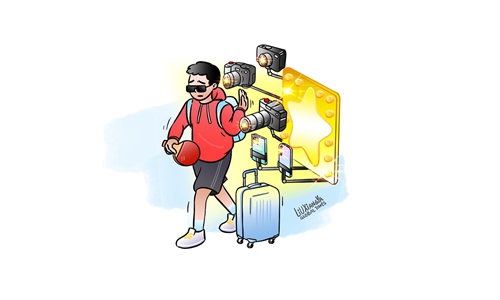ARTS / CULTURE & LEISURE
How China’s fan culture fans the flames

Illustration: Liu Xiangya
At the National Sports Culture Promotion Work Conference held on May 15, the General Administration of Sport of China emphasized the country should integrate awareness and resistance of distorted "fan culture" into sports, including but not limited to athlete selection and training and sports event organization and supervision, as well as take effective measures in guidance, risk prevention and other aspects to form an approach featuring collaborative and extensive governance from multiple departments.
Earlier in May, China's X-like Sina Weibo released a series of announcements concerning the 2024 Weibo "Sports Fandom Ecological Management" special action. The announcements said that Sina Weibo had made progress in rectifying distorted fan culture, clearing more than 12,000 pieces of harmful information and cracking down on more than 1,500 accounts due to inappropriate conduct.
This is not only limited to sports; fandom culture is also prevalent in other fields. At the recent 2024 Beijing International Automotive Exhibition, quite a few industry tycoons promoted their new products and interacted with visitors, attracting considerable attention. With the rapid popularization of social media, entrepreneurs use their influence to garner followers and deeply bind their IP with brand reputation, thereby promoting the transformation of "fans" into consumers. Such examples are not rare, for instance, these type of promotion has been used by Tesla CEO Elon Musk and Apple founder Steve Jobs.
So, what are the reasons for the prevalence of fan culture?
Externally, the spread of various fandoms appears to be based on the collective unconscious behavior of fans but actually stems from fierce business competition and naked capital manipulation.
The competitive advantage of technology, services and prices is subtle. As part of marketing in the new era of the automotive industry, many entrepreneurs communicate with consumers through internet thinking and utilize the "celebrity effect" to attract short-term traffic and attention.
Combining sports and entertainment has become the primary means of marketing commercialized sports to achieve maximum profits. In addition to conventional profit-making methods such as purchasing event operation rights, imitating the entertainment industry's "fan culture" operations, using the pan-entertainment model to promote sports stars, and taking advantage of their influence to attract fans have also become powerful money-making tools. As a result, the sports industry gradually has become a top-tier "star factory."
Internally, for one thing, in this highly atomized society, fandom culture meets people's need for quasi-social relationships. Since the 1990s, the highly market-oriented social transformation and the accompanying urbanization of China have transformed the traditional acquaintance society. A new generation of atomized individuals living in a state of loneliness and alienation due to apathy and a lack of geographical ties has created a society of strangers. In the internet era, fan culture allows them to build social relationships based on shared interests and fill the void.
One of the first factors behind the rise of fan culture is the human need for belonging and social identity. Fandom provides a sense of community, allowing individuals to feel connected to something larger than themselves. Fans create a shared social identity with other fans, fostering a sense of belonging and camaraderie. Second is emotional attachments and social support. This emotional involvement can provide fans with a sense of purpose, excitement and fulfillment. Third, community participation can provide social support as fans come together to celebrate victories or commiserate over losses, creating a solid support network.
For another, it feeds narcissistic needs, which have encountered a structural contradiction in post-industrial society. On the one hand, society requires us to constantly reach personal achievements for self-satisfaction. On the other hand, stratum solidification and fierce competition reduce the possibility of substantial personal achievement, and thus, people tend to project this ideal onto an idol who can realize their dreams and provide them with an alternative means to satisfy this narcissism.
In the Interaction Ritual Chain Theory proposed by Randall Collins, in specific contexts, people's interactions can strengthen their emotional identification, which will, in turn, further trigger more communication, thus creating a cycle. Fans form an emotional community through communication and interaction. The burst of emotions continuously stimulates collective behavior; therefore, fan culture gradually rises and spreads.
Faced with the prominent rise of fan culture, we should accept it conditionally and manage it accordingly.
Firstly, we should stay alert and constantly reflect on the situation. Secondly, we should reconstruct fandom operations, abandoning the short-sighted traffic-oriented approach and giving full play to the long tail effect of the fan economy. Lastly, the administrators of sport should set boundaries, crack down on illegal business activities, and prevent malicious manipulation. Misconduct should be handled in accordance with corresponding rules and regulations.
The author is a faculty member with the School of Applied Economics, Renmin University of China.



